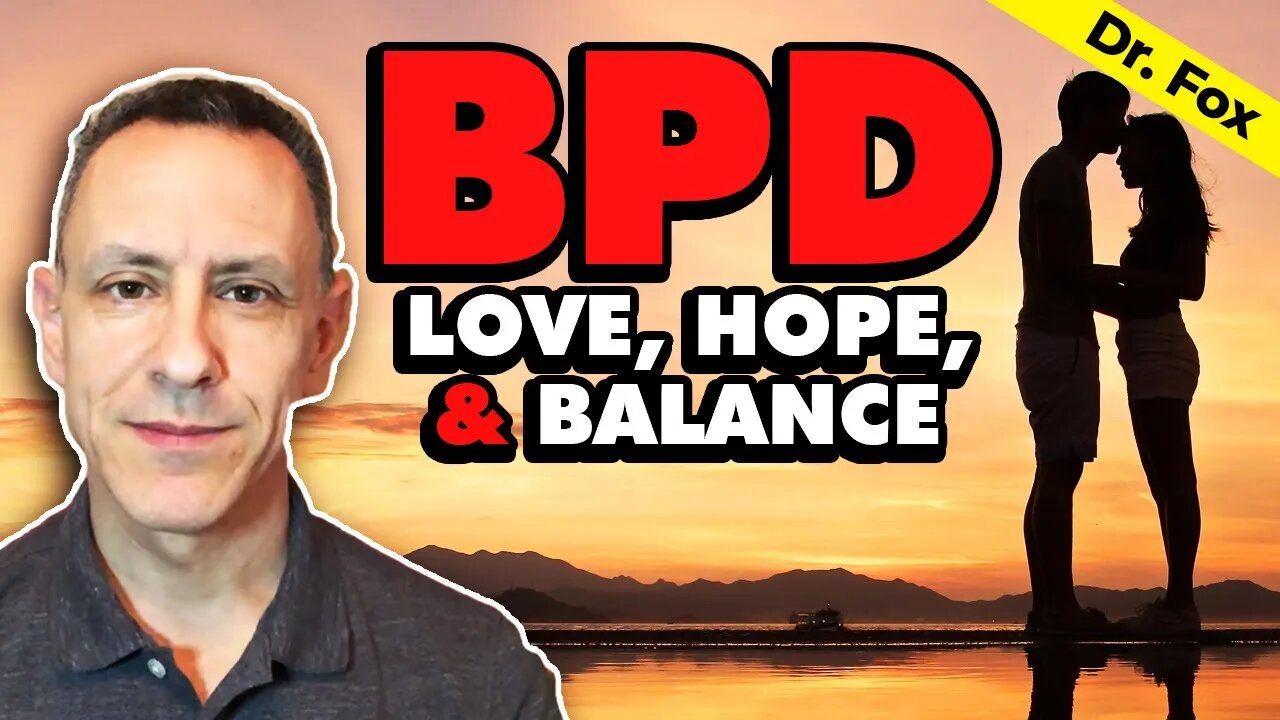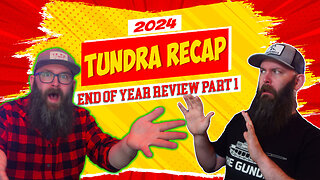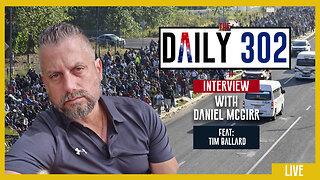Premium Only Content

BPD: Valuing Your Relationship? The Emotional Bank Account
BPD: Valuing Your Relationship? The Emotional Bank Account
Order The Borderline Personality Disorder Workbook by Dr. Fox: https://goo.gl/LQEgy1
Dr. Fox’s latest (research based book): Antisocial, Narcissistic, and Borderline Personality Disorders: A New Conceptualization of Development, Reinforcement, Expression, and Treatment: https://www.amazon.com/Antisocial-Narcissistic-Borderline-Personality-Disorders/dp/0367218054
Relationships are a central component to BPD. In this video, we’re going to identify and discuss the emotional bank account and how you can use it to assess your relationships with yourself and with others. An emotional bank account can be a measure of these relationships and it can help you not only see your relationship more clearly, but can help you make some pretty substantial deposits to strengthen those relationships that are most important to you.
An emotional bank account consists of deposits and withdrawals related to strengthening or weaken your relationships. When you turn toward your partner’s request for connection, you’re making a deposit. When you turn away, you’re making a withdrawal. If you have a zero balance or go into debt, your relationship is in trouble. You want to be a relationship baller for sure.
BPD maladaptive patterns adversely affect relationships, and 7 of the 9 DSM criteria involve or negatively impact relationships, causing a withdrawal from your emotional bank account. In many cases, those with BPD don’t understand why a withdrawal happens or have a hard time making a deposit out of fear of intimacy, rejection, abandonment, or emptiness. Remember, impaired insight is part of every personality disorder, and BPD is no exception. Well, let’s add to your bank account by increasing this insight so you can make a conscious decision on your deposits and withdrawals from your emotional bank account.
Examples of withdrawals include:
• Your partner asks for help and you refuse without explaining why
• You check your phone while your partner is talking to you
• You aggressively respond to a statement that you don’t like
• You nag your partner until they give in
• You indirectly ask for what you want or need, expecting them to “know” what you need.
• You criticize or deride your partner
• Mindreading, “I know what you’re thinking”
• Using sarcasm in your response
• Interrupting others when they’re trying to talk to you.
• Talking negatively about your partner to others.
• Blaming your partner instead of taking responsibility, when you are clearly at fault
• Engaging in the same behavior that angers you when your partner does it, such as walking away slamming doors during an argument.
• Using “You” in an accusatory manner, such as You made me mad when you…
• Deflecting responsibility onto your partner. When we have to take responsibility for our own thoughts, feelings, and behaviors.
Examples of deposits are listed below. If you’re on the BPD spectrum some of these are going to be scary, but it’s important to confront those fears and work to make those relationship deposits as often as you can.
• Apologizing when you make a mistake
• Listening and not interrupting or looking at your phone when your partner is speaking
• Spend time with them - play a game or cook with them, having your partner be the focus of your attention
• Greet them with a smile when they come home
• Notice and say something positive about what they’re doing
• Exercise kindness and patience
• Empathize with their situation when trouble and stress arise.
• When they make a mistake, be compassionate and help them to solve the problem
• Keep your promises
• Give them little surprise, gifts, or kind and loving texts for no reason.
• Give to give, and don’t give to get.
• Don’t keep score
• Give compliments
• Be clear and direct in your communication, no mindreading.
A good ratio is 5:1, 5 deposits for every 1 withdrawal. There is a lot of research that shows that supportive relationships positively impact the course and success of BPD. Again, these don’t have to be with a S.O. but it can be with a family member, friend, or coworker. Anyone and everyone. You can master you emotional bank account. You can make changes in your relationships and you don’t have to let those BPD maladaptive patterns disrupt and decay the relationships in your life.
YouTube: https://www.youtube.com/c/DrDanielFox
Dr. Fox’s website: http://www.drdfox.com/
Facebook: https://www.facebook.com/appliedpsychservices/
Twitter: https://twitter.com/DrDanielJFox1
LinkedIn: https://www.linkedin.com/in/drdfox/
Instagram: https://www.instagram.com/drdfox
Amazon Author’s Page: amazon.com/author/drfox
Dr. Fox maintains a website of various treatment interventions focused on working with and attenuating the symptomatology related to individuals along the antisocial, borderline, narcissistic, and histrionic personality spectrum (www.drdfox.com).
-
 4:56
4:56
Dr. Daniel Fox
1 year ago5 Key Principles of Positive Psychology You're Probably Ignoring
39 -
 DVR
DVR
Alex Zedra
4 hours agoLIVE! Trying to get achievements in Devour
62.7K7 -
 2:00:43
2:00:43
The Quartering
7 hours agoThe MAGA Wars Have Begun! Vivek & Elon Get Massive Backlash & Much More
72.5K24 -
 1:25:53
1:25:53
Kim Iversen
3 days agoStriking Back: Taking on the ADL’s Anti-Free Speech Agenda
60.8K22 -
 49:35
49:35
Donald Trump Jr.
10 hours agoA New Golden Age: Countdown to Inauguration Day | TRIGGERED Ep.202
141K165 -
 1:14:34
1:14:34
Michael Franzese
9 hours agoWhat's Behind Biden's Shocking Death Row Pardons?
61.4K42 -
 9:49
9:49
Tundra Tactical
7 hours ago $6.60 earnedThe Best Tundra Clips from 2024 Part 1.
63.4K7 -
 1:05:19
1:05:19
Sarah Westall
8 hours agoDying to Be Thin: Ozempic & Obesity, Shedding Massive Weight Safely Using GLP-1 Receptors, Dr. Kazer
61.1K17 -
 54:38
54:38
LFA TV
1 day agoThe Resistance Is Gone | Trumpet Daily 12.26.24 7PM EST
45.3K9 -
 58:14
58:14
theDaily302
16 hours agoThe Daily 302- Tim Ballard
47.8K2